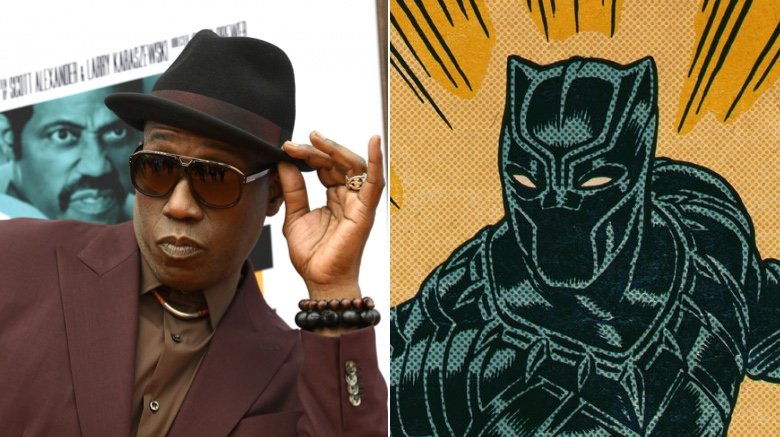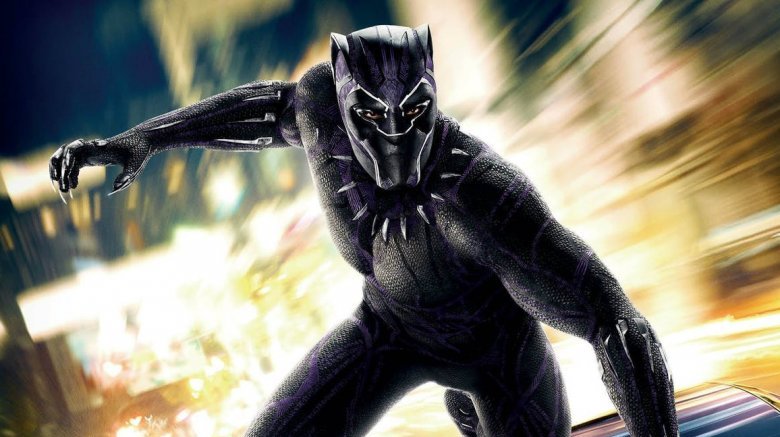What Wesley Snipes' 1990s Black Panther Movie Would Have Been Like
The man behind the behind the shades in Blade almost brought a very different Marvel hero to the big screen in the '90s — and he apparently still has quite a vivid memory of what his Black Panther might've looked like.
For those who haven't been reading the news the past few months, Wesley Snipes has been making headlines since Marvel Studios officially announced it would be rebooting a franchise he fronted back in the '90s. Said franchise is the kung-fu fighting, vampire-hunting, genre-redefining Blade. While Snipes had continued to champion himself as the man who should bring Blade back to the masses in recent years, he's still had nothing but kind words to offer Team Marvel regarding the reboot, and has continued to offer well wishes to Mahershala Ali, who's stepping into the role Snipes first made famous on the big screen.
Of course, it's been well documented that if Snipes had had his way back in the '90s, he actually would have brought a completely different Marvel hero to the big screen: the king of Wakanda himself, Black Panther. Though Snipes owned the rights to make a Black Panther movie for the better part of the decade, his take on the iconic black superhero never fully materialized. Eventually, he was forced to leave the character behind and move on to greener pastures. Even if those pastures involved him breaking the superhero mold with another iconic Marvel character in Blade, Snipes' Black Panther movie is still one of those "what if" projects that fans continue to turn over in their heads.
For proof of that fact, look no further than Snipes' recent red carpet interview for his upcoming Netflix film, the Eddie Murphy-starring Dolemite Is My Name. While promoting the new flick, Snipes opened up to ReelBlend podcaster Kevin McCarthy about what his Black Panther might've been like. Behind a big smile, the actor that his flick would've been "a cool opportunity for me to do something for truly my friends — all the martial arts cats, all the cats that love Shaft."
Snipes added that his Black Panther would have spared no expense, taken no shortcuts, and remained faithful to the source material: "We would've done all the vibranium, the x-ray vision, all the virtual operations, and the whole nine of it. I wanted it to be like the comic book was."
How does Snipes' vision differ from the MCU's Black Panther?
From the sound of it, Snipes' Black Panther probably wouldn't have been all that different from the Oscar-winning, true-to-the-books opus Marvel delivered in 2018.
However, what's interesting about Snipes' statement is how clearly he wanted to recreate a true likeness of the wondrous, technologically advanced world of Wakanda as presented within the pages of the Black Panther comic books. Ironically, one of the key factors behind Snipes' version not getting made back in the '90s was technology itself — or, more succinctly, a lack thereof.
Still chatting with McCarthy, Snipes stated quite plainly that "at the time, we didn't have the technology" required to bring his Black Panther vision to fruition. Given the world-building needed to bring a realistic version of Wakanda to life (as so vividly displayed in Ryan Coogler's 2018 version), it's hard not to agree with Snipes' assessment. And considering how large a part that world plays in any Black Panther narrative, well, it's maybe for the best that Snipes and his production team didn't try to do so with the limited CGI available to them at the time.
Still, it's fun to think about what might've been. And it's even more fun to imagine a version of T'Challa stalking the kingdom of Wakanda in full-on Shaft mode. That being said, it was probably wiser of Coogler and the Black Panther crew to build a little more humility in Chadwick Boseman's heroic T'Challa and leave all the swaggering menace for Michael B. Jordan's nefarious baddie Killmonger.
Whatever the case, Snipes' giddily candid statement can't help but lead one to wonder, "What if Black Panther were a little more like Shaft?" Oh, the possibilities. Sadly, it seems we're never to know.

